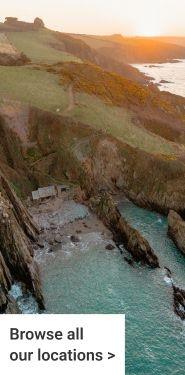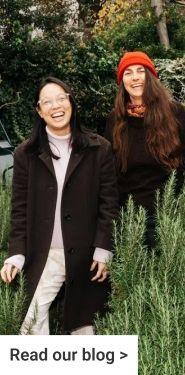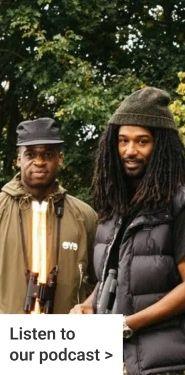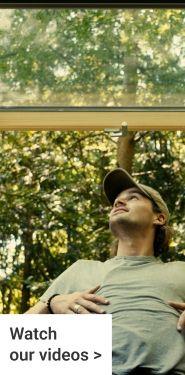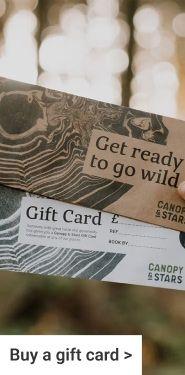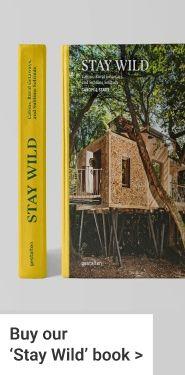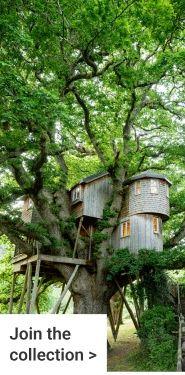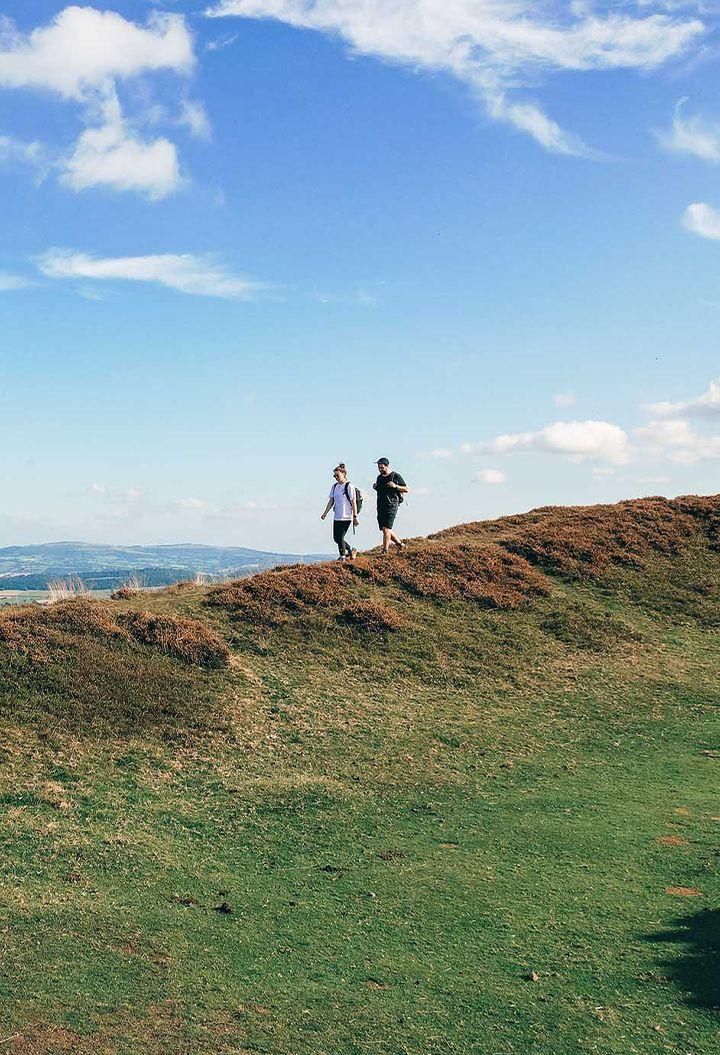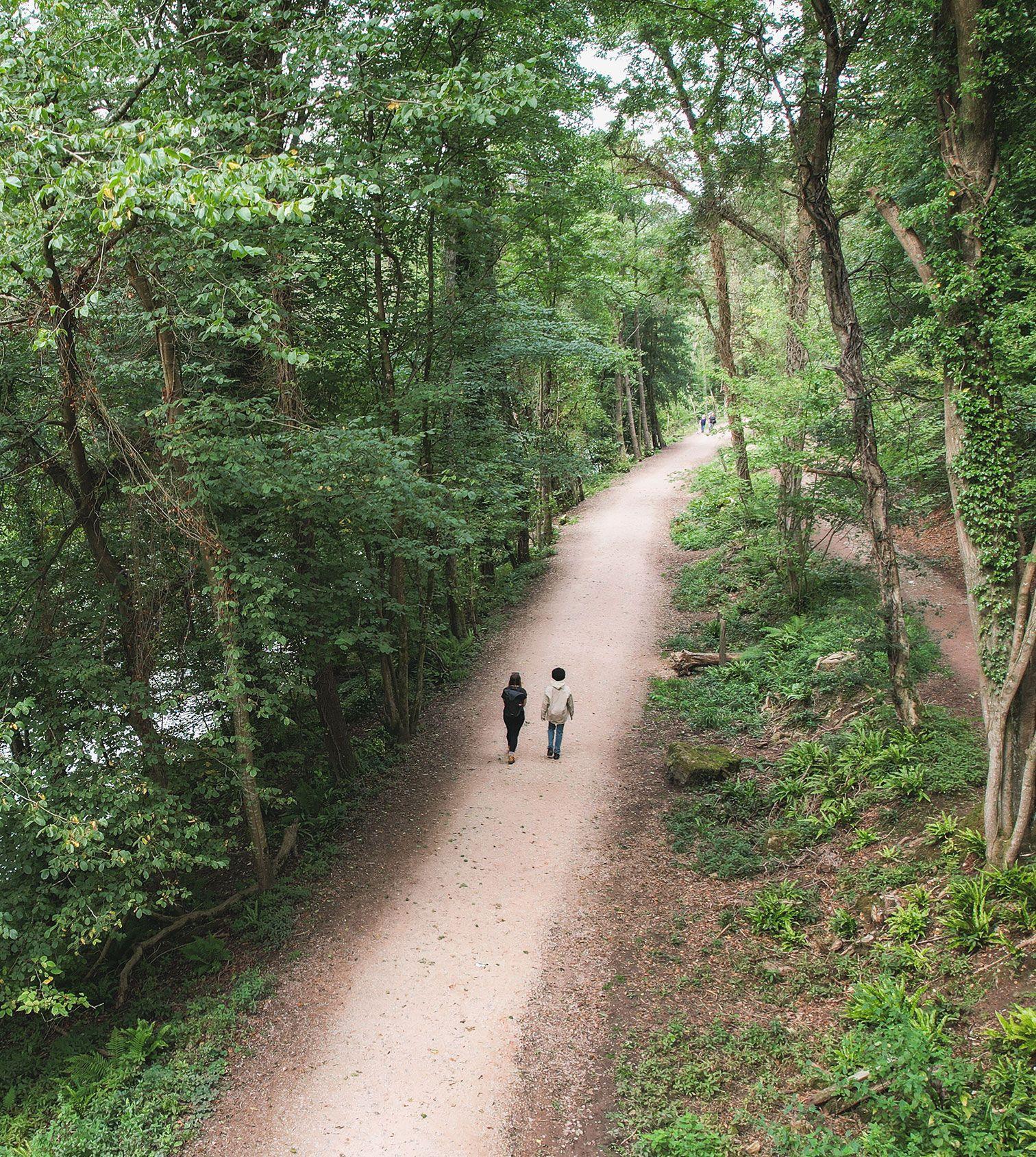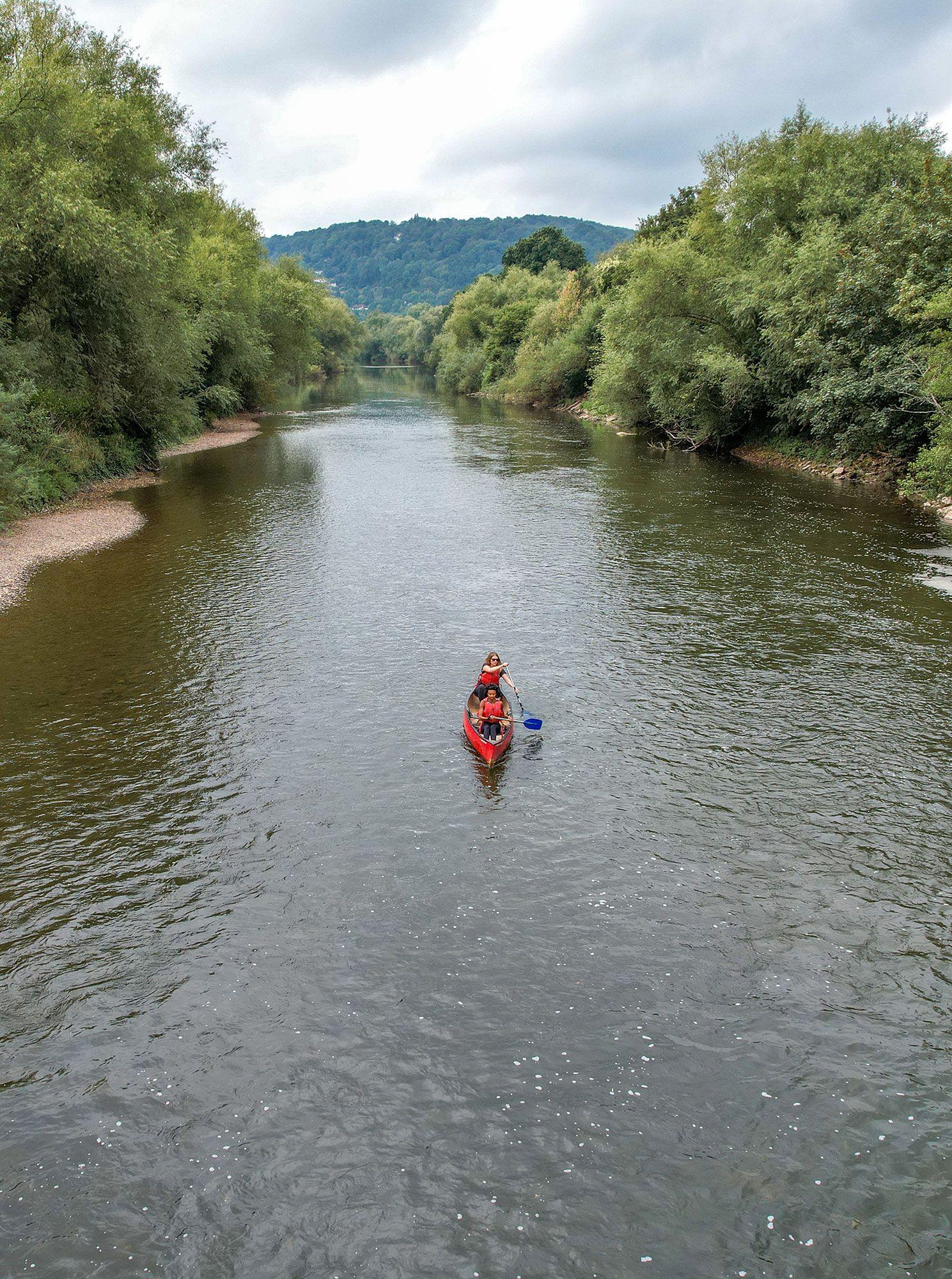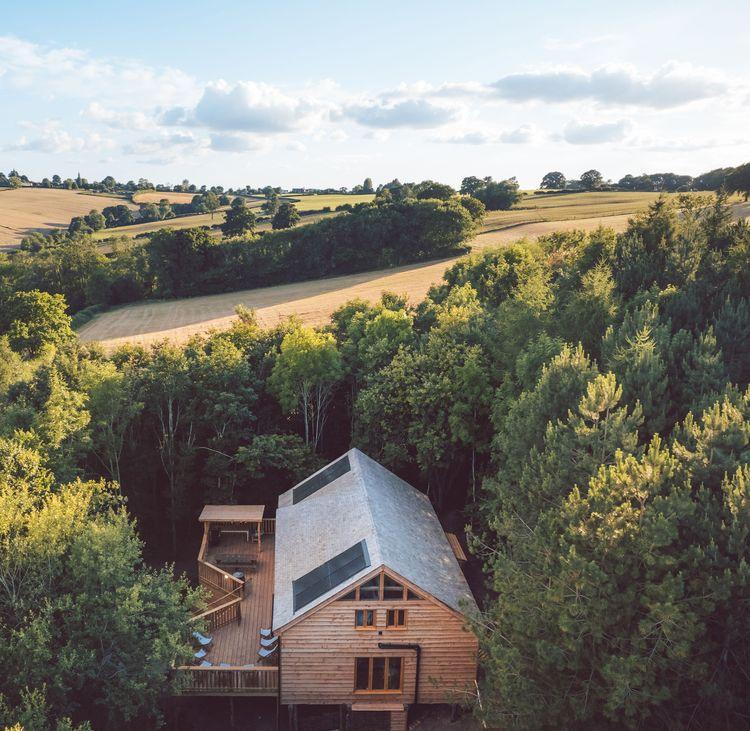
How a weekend in the woods changed our lives
We’ve all daydreamed about stepping out of our lives and moving to the country. In our heads we quit our jobs, wave goodbye to the city and live in harmony with nature. Very few of us ever actually do it, because even working out where to start can be a daunting prospect. Here is Penny and Will’s story, a couple of actors living in London who had always dreamed of a life in the country. A chance encounter lead to a woodworking apprenticeship that somehow ended up with them creating the incredible treehouses and cabins of Brook House Woods in the forests of Herefordshire. We spoke to Will about their journey and the change of pace from town to country life.
Tell us where you are and what the landscape’s like...
Brook House Woods is a part of Brook House Farm, which is a 350-acre farm that grows cider apples and hops as its primary farming business. There's also about 70 acres of woodland on the farm. It's in Herefordshire so there’s nature everywhere, it seems quite untouched compared to a lot of other counties, which is really nice.
And how did you end up here?
Before we moved here, we were living in London, me and my partner, Penny, who runs the business with me. We'd been living there for 16 years, both working as actors. One day I ended up down a kind of internet rabbit hole. I stumbled on a glamping place down in Dorset, which had yurts and bell tents and stuff. And it just really blew me away how lovely it was. So we kind of came up with this idea. And then over several evenings and several bottles of wine, you know, just came up with this harebrained scheme, that we'd find a bit of land somewhere and we would build some yurts and tree houses.
But it was about building a community too...
Part of the idea was, was always that we would have a workshop, and try and get local craftspeople to teach courses to our guests - basket weaving, leather work, candle dipping, you know, all sorts of natural crafts, which we thought would be in keeping with the space. Then, on a really random visit to a flower market in East London I stumbled upon this guy carving, handmade wooden spoons from green wood. It’s something I've always been really interested in that specific type of woodwork, with sharp hand tools and fresh timber straight from the trees. That was a real lightbulb moment for me. It was everything I dreamed that woodwork could be.
So what happened next?
Well I went and spoke to the guy initially to see if he would ever be interested in coming and teaching a course if we ever managed to do this thing, but while we were chatting, he mentioned something about an apprentice. And I just heard the words, “can I be your next apprentice” coming out of my mouth. I kind of badgered him into taking me on. And while I was working for him, I'd heard about this guy called Mike Abbott, who was the guy who he did his apprenticeship with. And that was that was the guy who had built the workshop here at Brook House Woods. He's a real legend in the green woodworking world. He really forged the way for a lot of people that are doing this craft.
How did you end up living there?
I went and I got in touch with him [Mike Abbot] and it felt like the source you know, of all this knowledge that was starting to spring up. I went and started off helping out on a chair-making course with him up in the woods. And people would come and just camp in the meadow and stay for a week and learn how to make a chair. And I remember the first time I came here, it was such a complete thing of stepping into this world and stepping out of everywhere else. I rolled up the track, very shakily on the motorbike, parked up and went in there. And that was it. I was in this little bubble of the wood. When I left I kind of had a little meltdown. I came down, back to London. I was on this complete high, floating out of the woods and as soon as I got to the Worcester bypass, I saw this big billboard. And it was like a slap in the face of this urban life again, flooding back.
We totally get that. How long did it take until you moved there?
The following year, while I was there, Mike decided that he was going to retire from the woods and set up a smaller operation at his home. He asked if I wanted to take over the workshop. And I think in the same week, I was just sitting out in the meadow, having my breakfast and the guy who owned the farm, happened to ride past on his quad bike. He asked me how I got into green woodworking and told him the story of how it started when we kind of discovered this glamping place and decided that we wanted to get a bit of land and build a workshop and build some yurts and build some cabins and things like that. And after about a three-minute conversation, he just said, “Would you want to just move here and do it?” So yeah, it was that simple, really.
How did you explain this to your partner, Penny?
I think I sent her a text along the lines of “Oh my God, oh, my God, I think we've just been invited.” She was, I mean she was over the moon, it was a total leap of faith, because like I said, it was it was a complete change of direction for both of us. It’s pretty nerve racking to pack up your whole life and move, and it was based on these chance encounters.
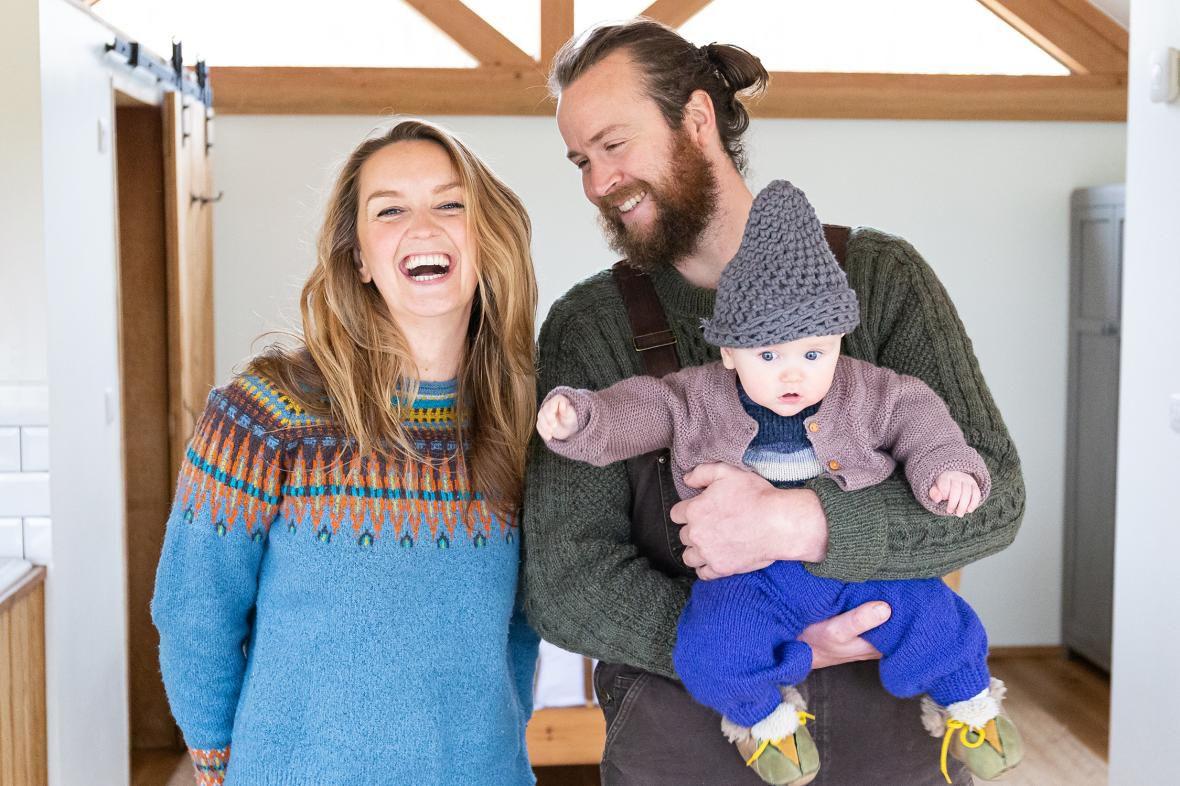
So what’s it like to live here in the woods?
For me, the biggest change that I really noticed... I don't know how to say it without sounding really new age... but the rhythm of nature is much more noticeable. Moving here made me realise how efficient we've become in cities at stopping nature from having any impact on productivity and consumption. In winter, you just turn your central heating on and you turn your lights on a little bit earlier, but not much about life really changes. Whereas here, in the summer, I could work till ten at night, in the winter, I have to stop at four in the afternoon. I needed wood to heat my caravan and it needs to be dry. So I needed to cut it down and split it into logs two years ago! All of that stuff started to be really apparent and the impact of the seasons was suddenly real.
You’ve got a young child, was that part of the reason for wanting to leave the city?
I spent a lot of time in, in nature when I was a kid. We were pretty poor growing up. So for my parents, entertaining us was just taking us for long walks in the countryside. We thought about it in terms of a few steps back, I remember thinking that once we've been doing this for a little bit of time, and put some roots down here, the idea of having kids will suddenly seem much more open to us. And it did. We're in the most beautiful place you could ever want to bring up a child. He's a little toddler now, so every day once he's had his breakfast, we just walk out into the farm and I don't really have to think of stuff to do, we just walk around.
Talking about how everything completely changes with the season, it’s mid summer, so what's life like, right now?
Now, half of every day is spent with my son. That's the really beautiful thing about running your own business and living where you work. The other half, I end up doing a lot of the maintenance and general tinkering with things that go wrong, as they often do with off-grid systems. The whole of last week, I was running a lathe building and bowl turning course. We had a group of eight people who came to the woods. There aren't really typical days, you know.
Do you still love the woods as much as when you first visited?
It just never gets old. Still, if I've got spare time, I kind of wander up to the workshop when it's quiet and sit there and look at the same trees that I looked at the first time I came here and stare at them with the same wonder. They still all give me the same kind of sense of peace and, and wellbeing.
Here, to a certain degree, is a community, a small community in a natural environment which is the thing that I've wanted, since I've been alive, really. It's one of my early earliest memories, having this dream of living in the woods with all my friends, really, in a simplistic, childlike way. But that plan hasn't ever really gone away so for me, the community that we've managed to kind of create here, with the people who live on the farm, is really special.
For the first four years, we would eat all our meals, cooked on the open fire up in the woods and around the big round table in the workshop and just be outdoors all the time, certainly throughout the summer months. Since having kids we've retreated a bit more into our own homes, because you've got to feed your child, but still we have that sense of community, knowing that there's other people on the farm. I just walk up the track into the woodland and there's all our friends.
If you want to experience the magic of Brook House Woods for yourself they’ve got a choice of seven spaces including a Whittler’s Cabin and Journeyman’s Treehouse – the palatial treehouse where Jack Harries stayed as part of his Herefordshire Wild Weekend.

